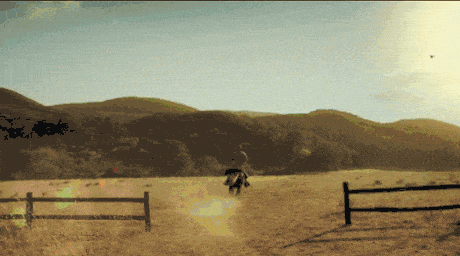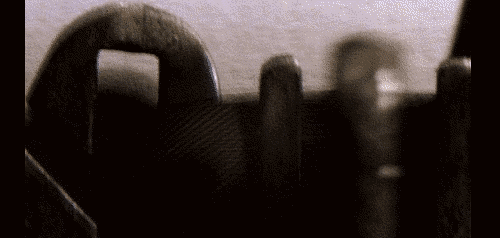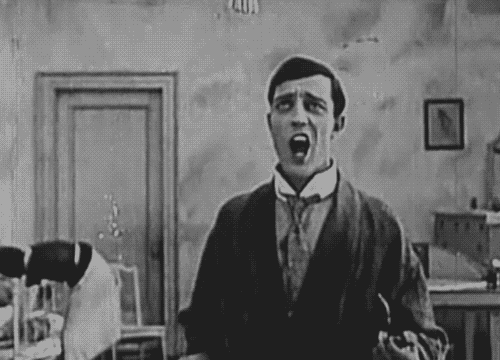By The Landlord
“How often do we tell our own life story? How often do we adjust, embellish, make sly cuts? And the longer life goes on, the fewer are those around to challenge our account, to remind us that our life is not our life, merely the story we have told about our life. Told to others, but mainly to ourselves.”
― Julian Barnes, The Sense of an Ending
“You'll have to face it, the endings are the same however you slice it. Don't be deluded by any other endings, they're all fake, either deliberately fake, with malicious intent to deceive, or just motivated by excessive optimism if not by downright sentimentality.” - Margaret Atwood, Happy Endings
“If you want a happy ending, that depends, of course, on where you stop your story.” – Orson Welles
“If I see an ending, I can work backward.” – Arthur Miller
“This is the end
Beautiful friend
This is the end
My only friend, the end
It hurts to set you free
But you'll never follow me
The end of laughter and soft lies
The end of nights we tried to die
This is the end.” – Jim Morrison, The Doors
“Do not go gentle into that good night.
Rage, rage against the dying of the light.” – Dylan Thomas
Life, as well as a bunch of beginnings, is also a series of endings, that is, until the ultimate one, and even then our end continues, for a while at least, like a coil of smoke in others’ memories. And even when something musical is over, it continues to resonate, not only in measurable sound waves, but also in emotions, ideas and other impressions. So what is the best way to end an album, or indeed, any song? Should endings neatly sum up what has gone before, or come with a surprise, a twist, or say something new and turn a new style? Should they end suddenly, with a flourish, or thrash chaotically, with a rage, a struggle, or simply fade out? Should they build to a grand finale, or come to punctuated satisfyingly close, following a drum roll and a short, sharp, single note? And afterwards, do we seek a feeling of resolution, or is uncertainty a better, and more true-to-life way to finish? Should the end mean closure, or the start of something new?
So this week our topic is about getting a sense of an ending. Initially it's best if nominations focus on with the songs and ends of songs that end albums. The only difficulty here is what constitutes the end of an album. It may be ambiguous due to reissues and different versions, additional songs, bonus tracks and modern, more random listening habits where the last track is less relevant, but some are distinct and firmly established. After that, let’s look at other notable songs’ endings.
But for inspiration, in this beginning-of-the-end intro, instead of wading into song examples, which is all down you fantastic people, I’m just going to dip into endings of other art forms to help inspire what we might be looking for in songs, from books to films and TV.
First up though, even more stars have popped into the Bar to tell us about endings. Propping it up at his usual spot, Stephen King tells us that, unlike like fiction, “Real life endings aren't always neat, whether they're happy endings, or whether they're sad endings.”
With George RR Martin, you always have the feeling it's not going to end well …
“Yeah,” says Game of Thrones author George RR Martin, no doubt plotting the sudden deaths of several main characters. “I have an instinctual distrust of conventional happy endings.”
Some prefer unconventional endings to be ambiguous. “Endings to be useful must be inconclusive,” says the author Samuel R. Delany. That's true. Ambiguity, or the unresolved, often keeps us thinking, even if it leaves us uneasy.
But what about in songs? Of all the people I expected to see here to talk about this it wouldn’t be Friedrich Nietzsche, but here he is: “The end of a melody is not its goal: but nonetheless, had the melody not reached its end it would not have reached its goal either. A parable.”
But where does that leave us? Certain or uncertain? “Certainty. Life's last and kindest gift,” says Milan Kundera, in Life is Elsewhere. “That’s right,” says L. Frank Baum, in the book The Marvellous Land of Oz, and in the voice of the Wizard of Oz who sets off in a balloon, leaving Dorothy behind. “Everything has to come to an end, sometime.” But does that leave us sad or happy, or is the best result both?
So let’s look at other endings in books, to help imagine how these might leave us in works of music.
What type of ending?
Perhaps great songs end on a beautifully poetic note, such as this:
“So we beat on, boats against the current, borne back ceaselessly into the past.” – The Great Gatsby by F. Scott Fitzgerald
Or just as beautiful, but much bleaker: “The offing was barred by a black bank of clouds, and the tranquil waterway leading to the uttermost ends of the earth flowed sombre under an overcast sky – seemed to lead into the heart of an immense darkness.” – The Heart of Darkness by Joseph Conrad. The horror …
Then there’s the poetically chilling: “Then starting home, he walked toward the trees, and under them, leaving behind him the big sky, the whisper of wind voices in the wind-bent wheat.” – In Cold Blood by Truman Capote.
Or perhaps it’s powerful to end on a very chilling note, such as this, from Nineteen Eighty-Four by George Orwell:
“He loved Big Brother.”
Brrggghhh indeed. And ever prescient. But instead of frozen in passive terror, how about a note of defiance and rebelliousness, and no shortage of paraonoia at the end of any song, such as this from The Catcher in the Rye by JD Salinger:
“Don’t ever tell anybody anything. If you do, you start missing everybody.”
Or how about a vague, dreamy, drifty musical ending of a song, in the quality expressed by Haruki Murakami in the last sentence of The Wind-Up Bird Chronicle?: “In a place far away from anyone or anywhere, I drifted off for a moment.”
Then there’s the master storyteller himself, James Joyce. In Ulysses there’s a stream of consciousness, a life and sense of love that refuses to sit still, fluttering and taking off like a bird:
“. . . and then he asked me would I yes to say yes my mountain flower and first I put my arms around him yes and drew him down to me so he could feel my breasts all perfume yes and his heart was going like mad and yes I said yes I will Yes.”
Or there’s the beautiful finality of his short story, The Dead, talking about the snow: “It was falling too upon every part of the lonely churchyard where Michael Furey lay buried. It lay thickly drifted on the crooked crosses and headstones, on the spears of the little gate, on the barren thorns. His soul swooned slowly as he heard the snow falling faintly through the universe and faintly falling, like the descent of their last end, upon all the living and the dead.”
Or what writer to end on, but Shakespeare and his own final lines, in his final play, The Tempest, after so many glories, an almost throwaway, humble request for applause before leaving the stage:
“As you from crimes would pardoned be,
Let your indulgence set me free.”
Film and TV endings can be stark, surprising, comical, and often musical. Here's just a few and some are even accompanied, very successfully by music too. Some of the best end, as with a final rhythmical flourish of conversation, hopes, dreams and plans, with a big fatal bang, such as Butch Cassidy and the Sundance Kid:
Or in TV, now looking rather dated, but seeming very shocking, and unconventional at the time, the final scene of the TV series Blake’s 7, where everybody dies!
Perhaps the most famous, and analysed end of final episode on TV was the Sopranos, where it suddenly stops and goes dark, with the family, typically eating (what else) and in cheap restaurant, and series of suspicious or otherwise characters arriving to possibly kill Tony, or possibly not at all. Undercut, cheesily but also brilliantly by the song Don’t Stop Believin’ by Journey. When first broadcast, my response was incredulity, but now it makes perfect sense:
Perhaps the best song endings are full of hope, such as in the film Gone With the Wind where comes the immortal phrase, ““Tomorrow, I’ll think of some way to get him back. After all, tomorrow is another day.”
And then other films end to start a whole other story, such as in Casablanca, after a tearful parting, the beginning of a beautiful friendship.
And then some endings are plain silly. At the end of Alejandro Jodorowsky’s The Holy Mountain (1973) which contains some of the most extraordinary and fantastic scenes in all cinema, and was in part funded by John Lennon, the camera draws back to show the director and his staff. Deconstructive, or just pretentious? And then in Blazing Saddles, Mel Brooks take the idea to a wonderfully silly level.
Just a few things, hopefully to inspire you to find a range of endings in music. So then, how best to end albums, or songs? Controlling the final curtain, this week’s musical director is the percussively perfect ParaMhor, who will making the last beat on all your song suggestions. Deadline for the end? 11pm on Monday UK time, for playlists published next Wednesday. This is the beginning of the end …
Buster Keaton …
New to comment? It is quick and easy. You just need to login to Disqus once. All is explained in About/FAQs ...
Fancy a turn behind the pumps at The Song Bar? Care to choose a playlist from songs nominated and write something about it? Then feel free to contact The Song Bar here, or try the usual email address.




